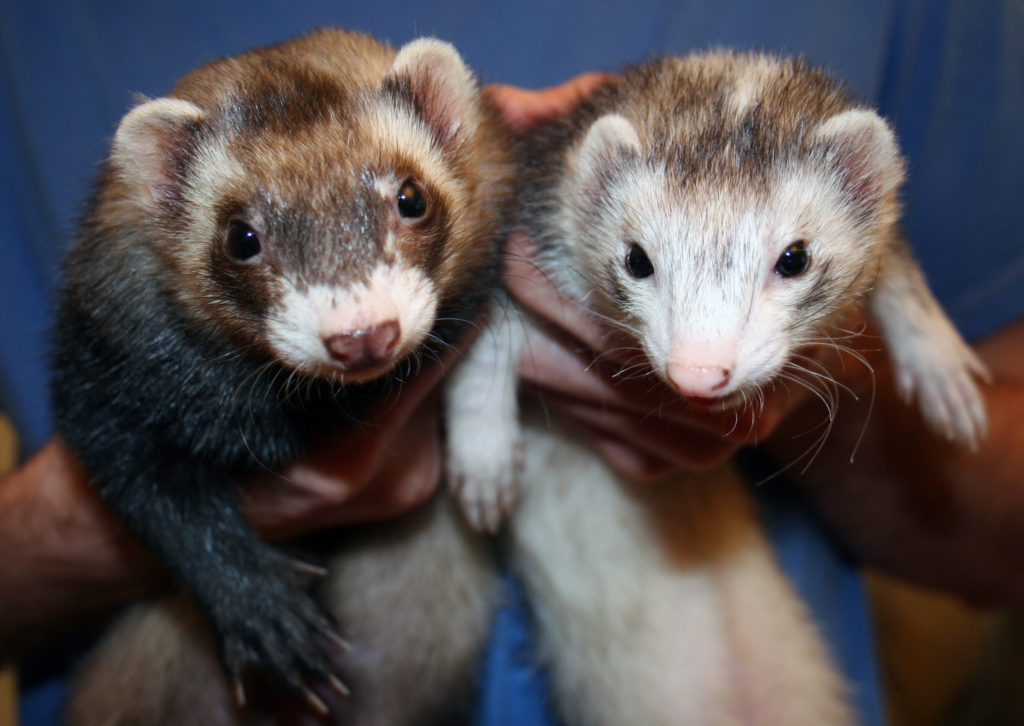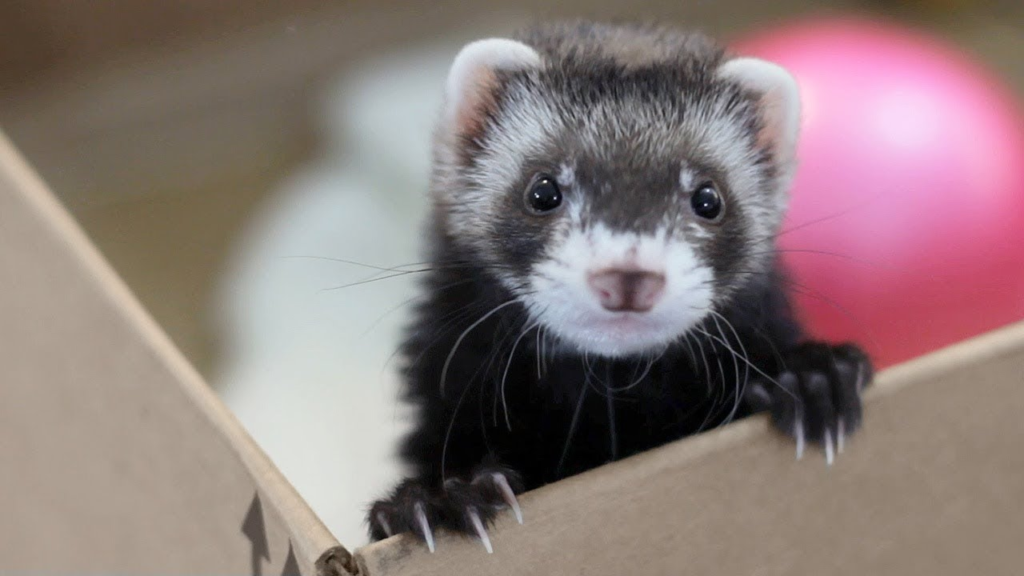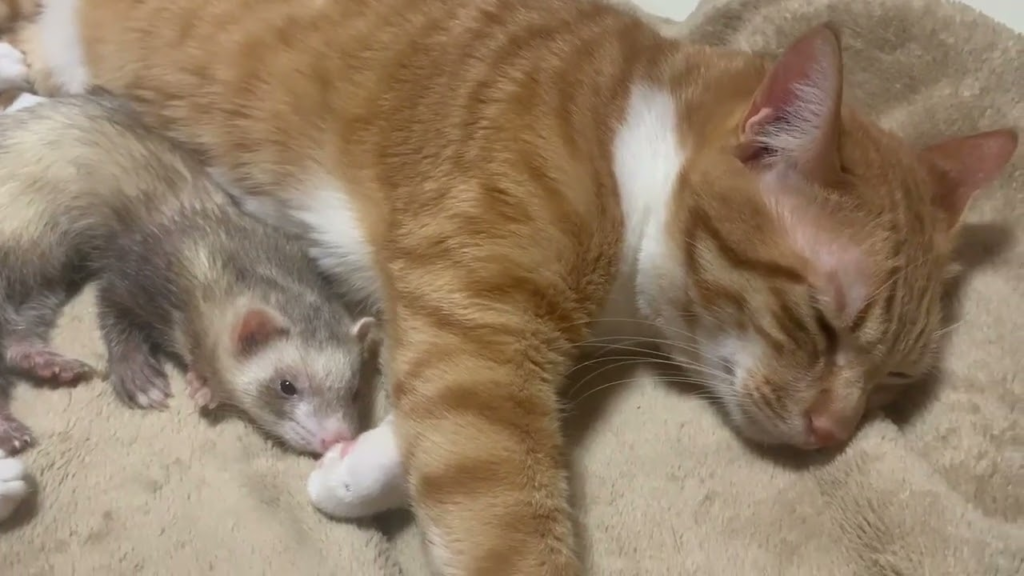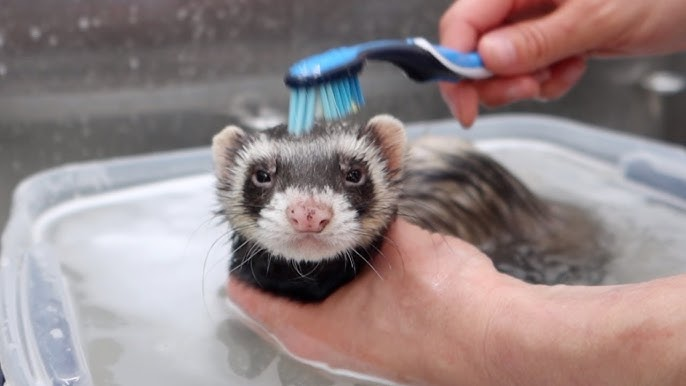1. Ferrets Are Escape Artists

Wikimedia Commons
Ferrets are notoriously clever escape artists, and keeping them contained can feel like a full-time job. Their slender, flexible bodies allow them to squeeze through the tiniest gaps, whether it’s under doors, behind furniture, or into cupboards. Owners often find themselves ferret-proofing their homes endlessly, only to discover their furry friend has found another way out. It’s not just the worry of a lost pet but the fear of them getting into harmful spaces, like electrical wires or small nooks where they can get stuck. The constant vigilance required can make owning a ferret feel overwhelming for many.
2. Ferret Odor Can Be Overwhelming

Flickr
While all animals have their own scent, ferrets have a musk that’s particularly distinctive—and not everyone finds it pleasant. Even with regular bathing, the smell can linger in their fur, bedding, and even in the home. Some ferret enthusiasts grow to love the smell, calling it part of their charm, but for many, it’s a dealbreaker. De-scenting surgeries and specialized cleaning products are options, but they don’t completely eliminate the issue. The upkeep can be a lot, and the odor can deter potential owners who prefer a fresher-smelling home.
3. They Require a Lot of Supervision

Wikimedia Commons
Ferrets are like toddlers—curious, mischievous, and always getting into something. They love to chew on wires, hide household items, and explore every nook and cranny. Leaving them unsupervised for even a few minutes can result in chewed shoes, damaged electronics, or them getting stuck somewhere dangerous. For busy people who are out of the house for long stretches or don’t have the energy to constantly keep an eye on their pet, a ferret’s high-maintenance nature can feel like too much to handle.
4. High Energy Levels Aren’t for Everyone

Flickr
Ferrets are bundles of energy. They love to run, jump, climb, and play for hours on end. While this makes them endlessly entertaining, it can be exhausting for owners who don’t have the time or stamina to match their enthusiasm. Many people expect a small pet to be low-maintenance, but ferrets are anything but. Without proper stimulation, they can become destructive or even depressed, which adds to the challenge of owning them. The commitment to regular playtime and enrichment can feel daunting for potential owners.
5. Expensive Veterinary Care

Flickr
Ferrets require specialized veterinary care, and not every town has a vet who’s experienced with them. Regular checkups, vaccinations, and potential surgeries can quickly add up, costing far more than the care for a typical cat or dog. Health issues like adrenal disease or insulinoma are common in ferrets and require ongoing treatment, which can be emotionally and financially draining. For many, the potential medical costs are a major deterrent to bringing a ferret into their lives.
6. Restricted Ownership Laws

Flickr
In some areas, owning a ferret is illegal or heavily restricted. States like California and Hawaii have banned ferrets altogether due to concerns about them becoming invasive species if released into the wild. Potential owners in these places either have to risk breaking the law or give up the idea of having a ferret as a pet. These legal hurdles make it easier for people to choose pets that are more universally accepted.
7. They Aren’t Great With Kids

YouTube
Ferrets are playful and curious but can be too rough for small children. Their playful nips, while harmless to adults, can hurt a child’s sensitive skin. Additionally, kids may not understand the ferret’s need for gentle handling, leading to accidental injuries. Parents looking for a family-friendly pet often choose animals like guinea pigs or rabbits that are less likely to bite and more tolerant of young children’s behavior.
8. Short Lifespan Breaks Hearts

YouTube
Ferrets typically live 5-8 years, which is heartbreakingly short compared to dogs or cats. Getting attached to a ferret means knowing you’ll likely say goodbye sooner than you’d like. For some people, the emotional toll of such a short lifespan is enough to steer them toward pets that offer more years of companionship. The rapid aging process and common health issues can make the experience bittersweet for owners.
9. Limited Interaction With Other Pets

YouTube
Ferrets are unique in their social behaviors, which means they don’t always get along with other common household pets. Cats may see them as prey, and dogs might view them as toys. Even when they do get along, the interactions require constant supervision to ensure no one gets hurt. For families with existing pets, introducing a ferret can feel like too much of a risk. The potential for conflict can deter multi-pet households from bringing a ferret into the mix.
10. They Steal—Literally

YouTube
Ferrets are notorious hoarders, and they have a penchant for stealing anything that catches their eye. Socks, keys, remote controls, jewelry—you name it, a ferret will stash it away in some hidden corner of the house. While this behavior is adorable at first, it can quickly become frustrating when important items go missing. Owners often find themselves tearing apart their homes in search of their ferret’s latest “treasure trove.” The constant retrieval missions can be exhausting and leave many wondering if the chaos is worth it.
11. Feeding Them Is Complicated

YouTube
Ferrets have unique dietary needs as obligate carnivores, meaning they require a diet primarily composed of animal protein. Many common pet foods don’t meet their nutritional needs, and owners often have to buy specialized ferret food or prepare raw diets, which can be expensive and time-consuming. Inadequate diets can lead to serious health issues, so their nutrition must be carefully managed. For those looking for an easy-to-feed pet, the dietary demands of a ferret can feel like too much work.
12. The Trend Has Simply Faded

YouTube
Like any pet trend, ferret ownership has seen its peak and decline. In the 1990s and early 2000s, ferrets were popularized by movies and TV shows, leading to a surge in their popularity. Over time, as newer “trendy” pets gained attention, ferrets fell out of the spotlight. Today, many people don’t even consider ferrets as an option, simply because they’re no longer at the forefront of popular pet culture. Without that visibility, they’ve become more of a niche pet, loved by enthusiasts but overlooked by the general public.


